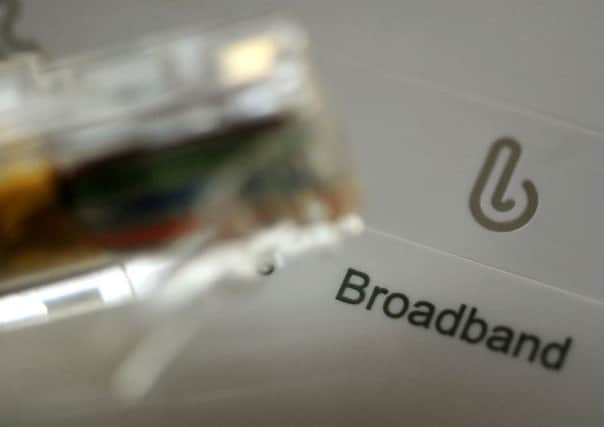‘Abysmal’ help for rural internet


Influential chair of the Public Accounts Committee Margaret Hodge hit out at BT and Whitehall officials over a continuing failure to ensure countryside homes and businesses have the same superfast broadband as their city counterparts.
Appearing before MPs, BT and civil servants were told it was unacceptable that a 90 per cent target for rolling out broadband connections across the UK would miss large parts of the countryside.
Advertisement
Hide AdAdvertisement
Hide AdMs Hodge said a study by the Federation of Small Businesses had suggested that just 16 per cent of firms in rural locations had the internet service they needed to create jobs and grow.
The MP said this was “an incredibly depressing and abysmal picture”.
“Half of rural firms are disadvantaged with the speed provided, you are clearly not delivering,” Ms Hodge told representatives of the broadband roll-out industry.
And in a further attack, she said the 90 per cent target used by the Government and BT was misleading. “Ninety per cent is great, but it’s not the case that nine out of ten will get superfast broadband,” she added.
Advertisement
Hide AdAdvertisement
Hide Ad“If you live in a little village and BT decides that even with £1.7bn of public money it is not profitable to invest in the village then you do not get this, so in some areas the roll-out is much less than 90 per cent.”
Sue Owen, permanent secretary at the Department for Culture, Media and Sport, admitted to MPs that targets were not all- encompassing, but insisted there were other initiatives to help rural areas.
She said some areas would not get up to 90 per cent “because they are hardest to reach”, but added that there was a “100 per cent commitment for two megabytes internet access”.
Her message threatened to undermine the positive news coming from Culture Secretary Sajid Javid, who yesterday said he would be bringing in measures to tackle mobile phone “not spots”.
Advertisement
Hide AdAdvertisement
Hide AdA deal recently agreed between the Government and network operators led to a commitment to reach 90 per cent of the UK and 99 per cent of all properties.
When this is in place the Government will use the Mobile Infrastructure Project to ensure that signal coverage will be “close enough” to 100 per cent, Mr Javid said.
“It still applies under the deal that there is certain amount that isn’t covered. You won’t find a country the size of Britain with similar land mass that has 100 per cent mobile coverage,” he added.
“You will find regions that are very remote, very hard to get to, where there are not many people living there.
Advertisement
Hide AdAdvertisement
Hide Ad“However, those people still need better coverage and that’s why the Government has this separate programme.”
The Conservative minister added: “One of the key issues is unfortunately you often find people that complained about poor local mobile coverage in their area are the same people that don’t want the mast.
“Every mast needs planning permission. I’m not going to name any local authorities, but some that have been the most vocal to me and my team about decent coverage in their area – actually they have been rejecting planning applications from us.
“Without a mast there is no coverage. It sounds simple but that is the issue you have to deal with.”